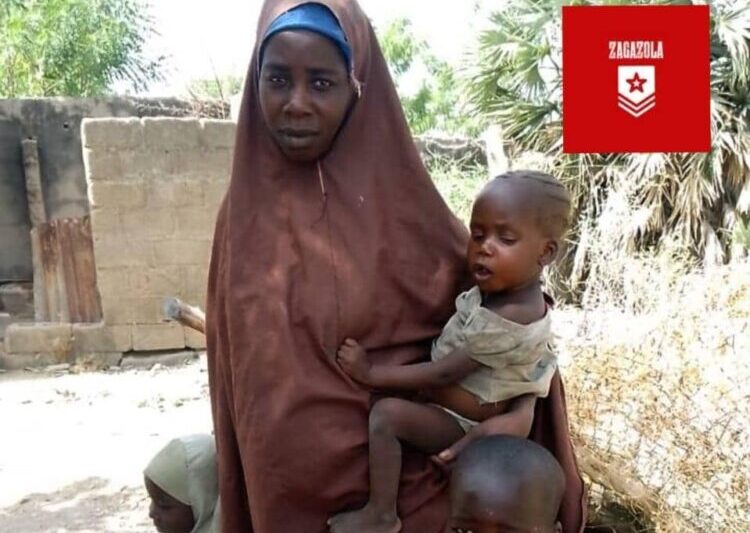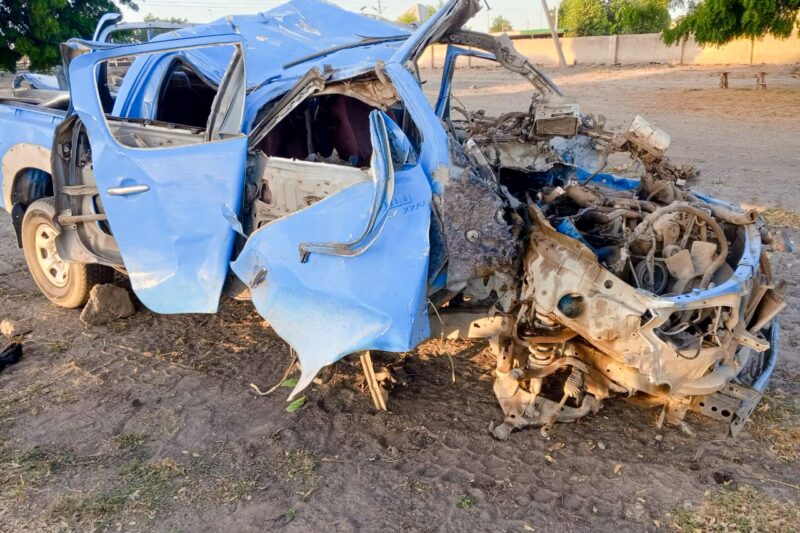Seven very long years of worry and fear are over for the parents of one of the Chibok girls abducted from their school in 2014 by members of the extremist group, Jamā’at Ahl as-Sunnah lid-Da’way Wa’l-Jihād (JAS), more commonly referred to as Boko Haram.
Ruth Ngladar Pogu – with other members of the JAS – surrendered to the Nigerian military in the Bama Local Government Area on July 28 and was reunited with her family on August 7 at the Borno State Government House in Maiduguri, where Governor Babagana Zulum welcomed her home.
Reuters quoted Zulum as saying that reuniting the girl with her relatives raised hopes that others still in captivity would be found.
Allen Manasa, a spokesman for the Chibok community, told RNI reporter Mamman Mahmood that he had spoken to Pogu shortly after she surrendered.
“I was contacted by a soldier who told me a young woman was claiming that she was one of the Chibok schoolgirls abducted on the 14th of April in 2014. He asked me to see if I could verify if she was telling the truth,” Manasa said.
“The girl, now a young woman, told me her name, the village from which she came, the names of her parents and her classmates. I checked the register and I found her name on it.”
He said her parents were pleased to see her.
“If a man loses his daughter for more than seven years and he gets her back in good health and alive, then he must be the happiest father around.”
Manasa said the woman’s father and mother had almost given up hope that they would ever see their daughter again. For seven years they had not known if she was dead or alive.
“It was very hard and now we give thanks to almighty God because not many people get this chance to see their child still alive after all these years.”
Manasa said Pogu was not the first woman to have escaped from her abductors or to have surrendered to the military. Two years after the girls were abducted, Amina Ali and a few other girls were rescued by vigilantes said to be working with the Nigerian military.
“When we found Amina Ali there was a rumour that all the girls had been taken to Cameroon. But we found them in the hands of the military,” he said.
He knew about four other schoolgirls who had escaped from their JAS abductors.
“It gives one hope that more of the young women will soon escape and reunite with their families.”
Manasa said Pogu was very young when she had been forced to marry a member of the JAS. While she was captive, she had a child with her husband – who was among those who had surrendered to the military.
But, Manasa said, she had gone through a harrowing time and had been left severely traumatised.
He said she and her child would undergo rehabilitation and reintegration and that Pogu and her child were already receiving psychosocial support, focusing on their health and psychological wellbeing, in Maiduguri.
Manasa said the child would be well taken care of because he was innocent of all wrongdoing.
“Many of the parents whose daughters are still in captivity are feeling more hopeful now that their daughters might escape one day or be rescued by the soldiers.”
He believed the Borno government could do more to get the remaining girls back if they held negotiations with the JAS as other states had done successfully.
He said 111 girls were still unaccounted for and were presumed to be with the insurgents.
Manasa said the government had not been committed enough to get all the girls back, adding that it should have shown the same strength as the Niger State government, which had managed, through negotiations, to get 42 people – including 27 Kagara pupils, three school staff members and 12 members of their families – released by extremists in February. In an attack on the Government Science Secondary School Kankara in Katsina State in December last year, 344 schoolboys were abducted. The military rescued them about a week later.
- On the night of April 14 2014, 276 schoolgirls aged from 16 to 18 were abducted by the JAS from the Government Girls Secondary School in the town of Chibok in Borno State. Prior to the raid the school had been closed for four weeks because of deteriorating security conditions, but the girls were at the school to take their final exams in physics. The shocking abduction attracted international attention. Some managed to escape after they were seized, mostly by jumping from the trucks carrying them and running into the bushes. Negotiations brokered by the International Committee of the Red Cross (ICRC) resulted in about 100 girls being freed. Over the years some of the girls had managed to escape or were freed by the insurgents or during military operations. However, it is estimated that more than 100 girls are still missing and being held in captivity.








